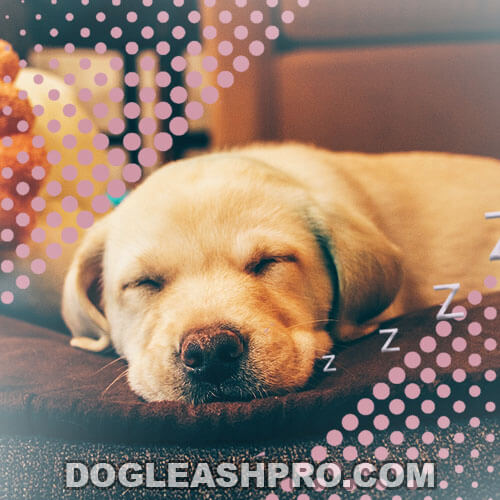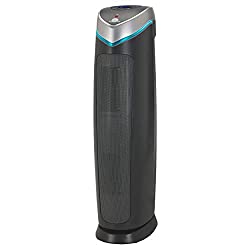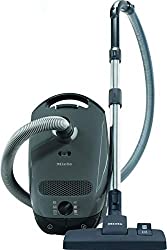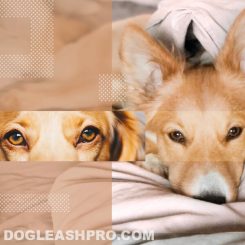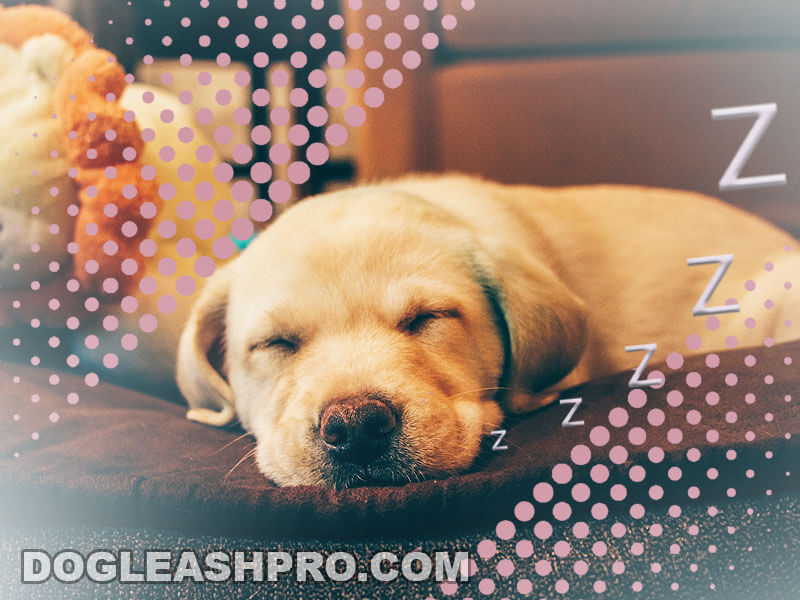
Dog sounds congested when sleeping: should you worry? As a fur parent, if you’re awake at night to your dog’s loud snoring, it’s normal to worry especially if the sound of her snoring sounds like her nose is congested. However, the good news is that nothing is alarming about this because, in a lot of cases, snoring is not a life-threatening condition, unless there are other symptoms involved like fever.
If you constantly hear your dog makes noises in sleep, you do not have to run to the ER right away. One of the reasons why the snoring of your dog sounds congested could be due to her facial features. Is your dog a Pug or perhaps a French Bulldog? It’s not uncommon to hear brachycephalic dog breeds snore and sound like their nose is congested while asleep.
But, of course, we do not recommend that you just take your pooch’s snoring with a grain of salt. If snoring and nose congestion are accompanied by lethargy or lack of appetite, it’s best to schedule an appointment with the vet to check for upper respiratory infection.
RELATED: Puppy Breathing Fast While Sleeping (When To Worry & How To Help)
Table of Contents
My Dog Snores And Sounds Congested: Should you worry?
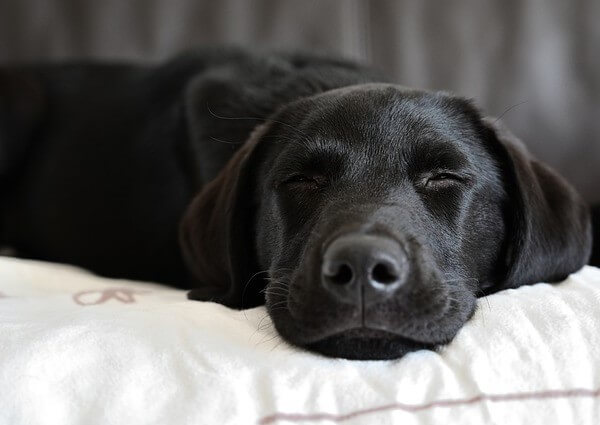
It depends. If your dog snores while sleeping but appears fine during the day, meaning she plays, eats, and drinks well, then, you shouldn’t worry at all.
But the story is different if your dog making noises while sleeping is unusual, meaning, it is not something you hear from her all the time. If that is the case, then yes, you should worry if you suddenly hear your fur baby snore and sounds congested, which a trip to the vet is the right thing to do.
Why Does My Dog Sound Congested When Sleeping?

Sometimes, a dog makes weird noises when sleeping like snoring, wheezing, and in some instances, even light barking while asleep.
But what is snoring anyway? Snoring is a noisy sound that is heard while sleeping. It is caused by soft tissue vibration in the upper airway. Snoring happens when the air passage is blocked by organisms such as allergens.
Today, we will share with you information about why you hear your pooch snore and why it sounds like nasal congestion. So, without further ado, here are the ten reasons why your canine friends snores while sleeping.
Don’t miss: Dog Sleeps With Eyes Open (Should You Be Concerned?)
1. Dog Making Noises In Sleep due to Dental Problems
You’d be surprised but dental problems have other symptoms other than bad breath and swollen or bleeding gums.
If a dog makes noises when sleeping, don’t discount the possibility that your pooch may have some periodontal diseases.
An infected gum or a fractured tooth may have an abscess that results in inflammation of the nasal passage. The mouth and the nasal passage are connected and this is why infection in the mouth area may lead to breathing difficulties and snoring.
Regular dental checkups should not be skipped because a mild dental problem can cause health issues that can otherwise be prevented.
2. Dog Breathing Sounds Like Snoring as a result of Odd Sleeping Positions
Another reason why you would encounter a dog snoring while breathing is his sleeping position. Do you notice your dog sleeping on his back with his belly exposed and his paws up?
One of the reasons why a dog would sleep this way is because he is feeling warm or hot and it is trying to sleep comfortably by exposing his tummy and paws to cool air. This not only allows their body temperature to cool down, but it also feels good when air flows over their stomachs.
By exposing the parts of their body where hair is thinnest, their body would thermoregulate by letting the air cool the dilated blood vessels in their stomach, thus, decreasing body temperature.
Dogs also sweat through their paw pads, unlike us humans who sweat through our skin. Letting their paws up in the air allows for sweat to get evaporated quickly and cool down their body.
This position, however, may cause slight obstruction in their nasal passageway, which, in turn, will cause a dog to get congested and start snoring.
3. Dog Breathing Sounds Raspy when Sleeping because of Allergies
Snoring can also be due to allergies, which is one of the most common reasons for snoring in dogs. An allergy is an inflammation in the nasal mucous membranes, which restricts the flow of air in the respiratory tract.
An allergy can either be acute or chronic. Acute allergy can be caused by smoke inhalation, pollen, dust mites, or any foreign object getting lodged inside a dog’s nose.
If your furry friend has acute allergy, it’s a good idea to get an air purifier with a HEPA filter. The HEPA filter in air purifier is crucial because it helps trap bad particles like dust mites, pollen, and even smoke.
After I purchased the GermGuardian Air Purifier Filter HEPA, I noticed my Labrador Retriever slept well through the night and he no longer snore and sound congested when sleeping.
On the other hand, chronic allergies can be due to an underlying health condition, such as parasitic infection, fungal infection, chronic inflammatory diseases, and tumors.
You may be interested in: White Specks in Dog Poop (Not Moving): What Should You Do?
One of the signs, when the nasal passageway is inflamed, is dog snoring sounds congested during sleep. This indicates a clear sign that a dog has difficulty breathing.
Other symptoms include nasal discharge that may be pus-like or clear, redness in the eyes, and sneezing.
Check out: How To Soften Dog Eye Boogers?
4. Dog Stuffy Nose at Night due to Upper Respiratory Infections
Same as humans, dogs can also get infected with upper respiratory infections. Don’t you find it difficult to get a good sleep every time you are sick with a cough or cold?
Dogs with respiratory infections like kennel cough, or parainfluenza also suffer from stuffy noses and the act of breathing becomes difficult. As a result of this, your canine friends may sound congested and snores in their sleep.
So, regardless of the breed, be it a long-snouted dog breed like a Cream Long Haired Dachshund or a short-snouted dog breed such as a Pug, snoring while they have respiratory infections is common.
That said, if the breathing of your Pug sounds congested, look for other signs including fever or refusal to eat and drink because these signs warrant a visit to the vet clinic.
RECOMMENDED: How to Get Your Dog to Eat When Sick
5. Dog Breathing Loud while Sleeping due to Polyps
You may be asking yourself, ‘Why my Yorkie sounds congested when breathing and sleeping?’
If there are signs like constant sneezing and nose bleeding, you may want to bring her to the vet and have her checked for nasal polyps. These are pink polypoid that grow on the lining of the nose.
Though these polyps are non-cancerous, they make it difficult for dogs to breathe well, thus, nasal polyps can cause dogs to snore while breathing and sleeping.
6. Dog Can’t Breathe Through Nose at Night because of Facial Structure
Some dog breeds are more prone to snore than others because of their facial structures. Dogs with pushed-in noses or short snouts, also known as brachycephalic dog breeds, have shorter breathing passages which may cause snoring during sleep.
Owners of French Bulldogs may sometimes observe and ask themselves, “why my French Bulldog puppy sounds congested?” This is also true for Shih Tzus, Boston Terriers, and Pekingese.
Brachycephalic conditions in dogs have four (4) components. The first two are the primary characteristics, which are an elongated soft palate and narrow nostrils.
The excess soft tissue in the palate, or upper airways, causes air to be obstructed resulting in irregular turbulence and vibration. Add to that the narrow nasal passageway that makes it difficult sometimes to breathe causing them to pant and breathe through the mouth more often.
The other two secondary components of the brachycephalic syndrome in dogs are laryngeal saccules being everted or turned out, and collapse of the larynx that results from the primary components.
The small bags of tissue in front of the vocal cords, which are the laryngeal saccules, may be pulled down when dogs breathe harder than usual to fill their lungs. Laryngeal collapse happens when the cartilage in the voice box loses its rigidity which eventually becomes weak.
7. Dog Making Weird Snoring Noise because of Age
As a dog ages, the nerves in the larynx can deteriorate making the muscles in the voice box weak and causing it to droop. This blocks the air resulting in a dog breathing loud when sleeping. This condition, also known as, laryngeal paralysis, is common among long-nosed breeds, like the Irish Setters and the Labrador Retrievers.
Read next: Chihuahua Lab Mix (Complete Guide)
When there is laryngeal paralysis, the vocal cords do not open correctly during inhalation resulting in stridor or noisy breathing.
Symptoms include coughing after an exercise or during eating and drinking, as well as, a change in the sound of the bark.
While the condition may lead to suffocation in some cases, this does not necessarily mean that a dog’s life expectancy will be shorter. If detected early, treatments like anti-inflammatory medication or sedatives can reduce any breathing difficulties. Surgery is the last option for severe cases.
8. Dog Making Noise in Sleep due to Obesity
Obesity can also cause snoring in dogs. Fat doesn’t only accumulate in a dog’s waist but also around the neck and throat area. Fat tissues can eventually narrow the respiratory passageway leading to snoring.
Excess weight can also put pressure on the heart and lungs making breathing even more difficult.
Poor diet and lack of exercise are the main culprits of obesity which affects almost 60% of dogs in the United States.
According to research, the top dogs that are prone to obesity include the Pug, Beagle, Labrador Retriever, and Bulldog.
Read also: How Much Should A Beagle Weigh?
Bulldogs, being brachycephalic, will exacerbate Bulldog congestion problems, like labored breathing and coughing due to narrow respiratory passageways.
9. Dog Sniffles at Night due to Sleep Apnea
Sleep apnea is a condition wherein the breathing stops and then resumes while the dog is sleeping. Affected dogs with sleep apnea usually begin with shallow breathing patterns.
Then the breathing stops momentarily. And when their breathing is resumed, it starts with a sharp and deep inhale that sounds like congested breathing and snoring.
Though sleep apnea is rare, still, some dogs can be affected including Chihuahuas.
How do you know if your canine family member suffers from sleep apnea?
Frequent snoring and waking up in the middle of the night are two symptoms. The narrowing of the air passage causes these two signs.
So, if the breathing of your Chihuahua sounds congested and it seems like she cannot get a full night’s sleep or even daytime sleep, you may want to have her checked for sleep apnea.
You may also like: Chihuahua Health Issues (Complete Guide)
10. Dog Sounds Congested at Night because of Side Effects of Medicines
A puppy sounds congested when sleeping could be a result of the medicines that your pup is taking. One of the common side effects of medicines is drowsiness which causes your puppy to slumber deeply and causes snoring that sounds like congestion.
Why Does My Dog Make Weird Breathing Noises When Sleeping?
As you have seen from the above discussions, the reasons why your dog making weird breathing noises while sleeping varies.
In most cases, the reasons are non-medical, meaning, snoring that sounds like congestion are nothing to worry about.
However, if there are other signs present and if your gut tells you something is not right about your canine friends, take them to the vet for a thorough physical examination.
Moreover, aside from the ten reasons we cited above, did you know that dogs also make weird breathing noises while dreaming?
Yes, just like you, your fur baby also slumbers into a deep state of sleep, referred to as rapid eye movement or REM. During this stage, it is not unusual to hear your pooch snore heavily, bark, and even whine.
RECOMMENDED: Dog Breathing Fast While Sleeping (Should You Be Concerned?)
What To Do If Your Dog Is Congested?
In order to minimize your dog’s congestion, the first thing to do is to identify the root cause of the problem.
Whether it is caused by seasonal allergies or due to your dog’s physical attributes, it is important to know the reasons in order for you to deal with the problem better.
1. Change your dog’s sleeping position
The quickest way to reduce your dog’s snoring due to congestion is to simply readjust her sleeping position. If you notice that your fur baby is struggling to breathe or inhale air, moving her body or her head to the side when she is faced up will reduce the snoring.
Fluids, especially if congested, can sometimes accumulate in the nasal passageways and cause a gurgling sound aside from snoring. Just make sure to do it gently without disturbing your dog’s sleep to avoid sudden surprises.
2. Clean your dog’s sleeping space
Make sure that your dog’s sleeping space is free from any debris or harmful toxins that might aggravate their congestion. Dust mites can easily trigger an allergic reaction in a dog that will cause clogging of the nasal airways. Thus, it is important to keep their bed, the floors, and the surrounding area free from dust.
One of the solutions to keeping your dog’s sleeping space clean and free from dust is by investing in a powerful and durable vacuum cleaner. A good vacuum cleaner should be one that is quiet and can seamlessly transition from hardwood floor to carpet.
We’ve been using the Miele Vacuum Cleaner for more than 5 years now and we love it because it features maximum maneuver function and six (6) different suction power settings specific to whichever surface you need cleaning.
It is also recommended to wash their toys regularly to keep bacteria and fungus from accumulating. Fungus release spores that can be inhaled by your dogs, such as candida or aspergillus, and cause fungal pneumonia.
While it is important to have a clean area, certain cleaning products with strong fragrances and perfumes can also trigger an allergy. Some cleaning products and air fresheners contain harmful chemicals or volatile organic compounds, like alcohol, formaldehyde, or acetone that can cause breathing problems.
3. Visit your veterinarian
Congestion in dogs can be a manifestation of a mild to a severe underlying health issue. Most of the time, congestion only lasts for a short time and will eventually resolve by itself.
But, when you notice the behavior changing and the congestion taking longer than usual, then it is time to visit your vet. Take note of the nasal discharge if it changes from clear to yellowish-green, or if there is blood coming out. This is already a sign that your dog is in distress and needs to be checked.
The veterinarian may perform several tests, like an X-ray or rhinoscopy to collect samples and investigate the root of the problem.
Home Remedies For Dog Nasal Congestion
If you notice your dog sneezing or having a nasal discharge, especially during the colder months when you have to stay at home most of the time, there are several home remedies you can do to ease their congestion.
1. Steam treatment
Warm steam can easily unclog a stuffy nose by opening up the sinus. Place your dog in the bathroom while running a hot shower for 10 to 15 minutes to inhale the moisture.
Another option is to install a humidifier in the room. The increased moisture in the air will help a dog reduce its snoring. Humidifiers also have the added benefit of soothing your dog’s dry skin making his sleep more comfortable.
2. Chicken soup
Chicken soup is not only effective for colds in humans but for our canine family members as well. Research suggests that chicken soup helps in thinning mucus and helps the body fight against infection because it has the amino acid, cysteine. Just make sure that the soup does not contain garlic or onions that are toxic to dogs.
Check out: What Can Dogs Drink Besides Water?
3. Herbal treatment
Herbal oil drops, like elderflower, kali bichromicum, or mullein leaves are thought to reduce inflammation and expectorate mucus. A few drops of these on their water or food can help reduce symptoms of congestion.
Another effective treatment is to add a spoonful of honey to their food, which has antimicrobial and antifungal properties.
Before using any of these products, it is recommended to seek the advice of your vet as these may have harmful reactions on your dog.
RECOMMENDED: Are Hostas Poisonous To Dogs?
4. Aromatherapy
Essential oils, such as eucalyptus, peppermint, and lavender can be diluted in water and placed in a diffuser. They have antiseptic properties that can ease clogging of the nose. Make sure to check with your vet before giving this treatment as some dogs can have adverse reactions to these oils.
5. Coupage technique
Coupage is a technique of gently patting your dog’s chest with cupped hands. This helps loosen the congestion in the lower airways to let your dog cough out the mucus.
So, why does my Dog Sounds Congested When Sleeping?
Just like us humans, our dogs can also suffer from occasional congestion. Whenever my dog sounds congested when he sleeps, I make sure to check for any changes in his behavior that could signify a more serious issue.
But, most of the time, it is just a minor issue that usually resolves by itself. So, why does my dog sounds congested while sleeping? The reasons we’ve discussed above will give you more information and will ease your worries whenever you sense that your dog is suffering from congestion when sleeping.
Paying attention to your dog’s well-being and being proactive in your approach regarding their health means you can avoid a major illness before it gets serious.
DISCLAIMER: THIS WEBSITE DOES NOT PROVIDE MEDICAL ADVICE
The information, including but not limited to, text, graphics, images and other material contained on this website are for informational purposes only. No material on this site is intended to be a substitute for professional veterinary advice, diagnosis, or treatment. Always seek the advice of your veterinarian or other qualified health care provider with any questions you may have regarding a medical condition.
Resources:
https://www.vetmed.wisc.edu/ask-a-uw-veterinarian-dog-snoring/

With over five years of specialized experience as an animal writer, my expertise lies in dog nutrition, health, behavior, grooming, and training. I am dedicated to delivering helpful and informative content that caters to the well-being of our furry friends. My primary goal is to empower pet owners with knowledge and ensure our canine companions thrive in health and happiness. In my free time, I love volunteering at local dog rescue centers.
